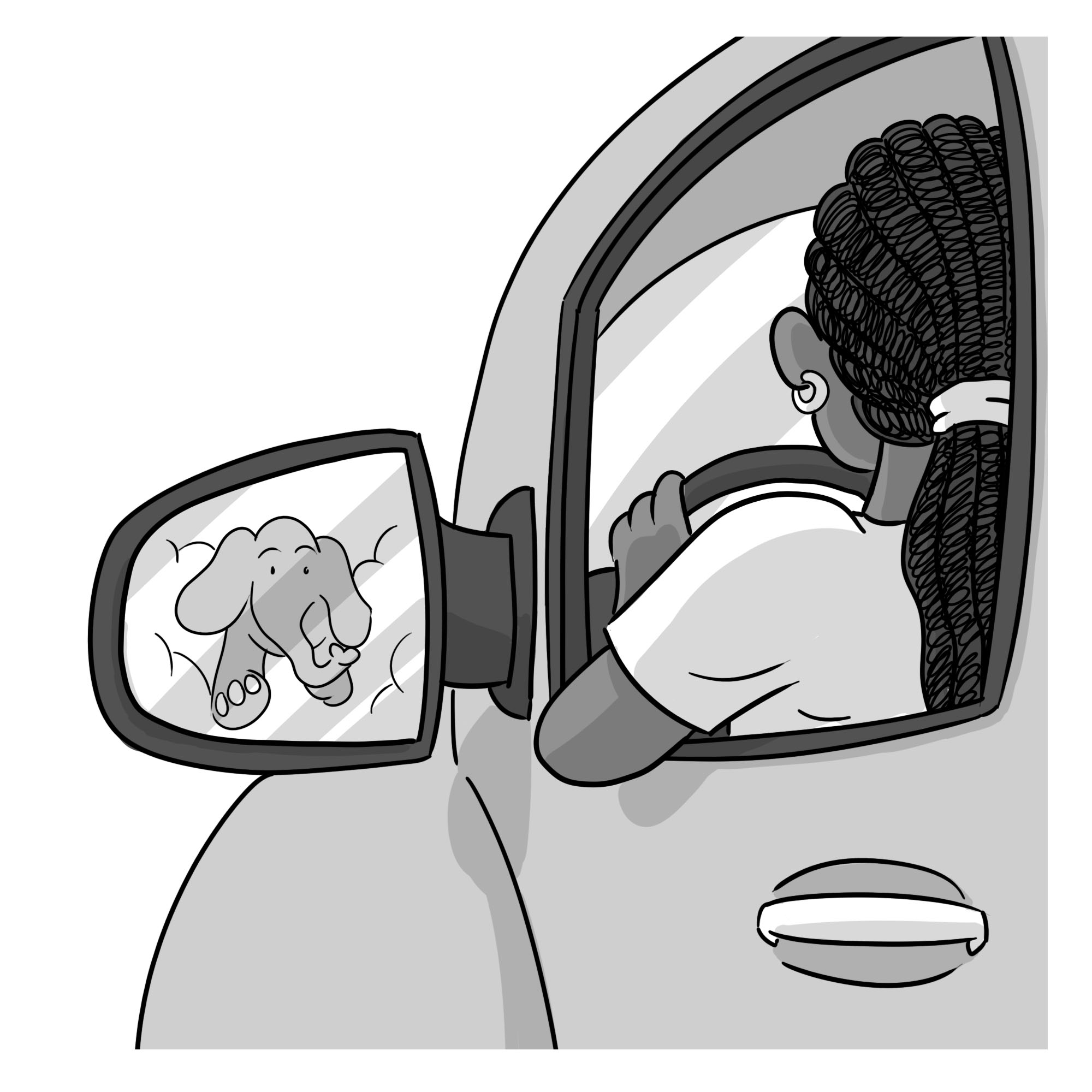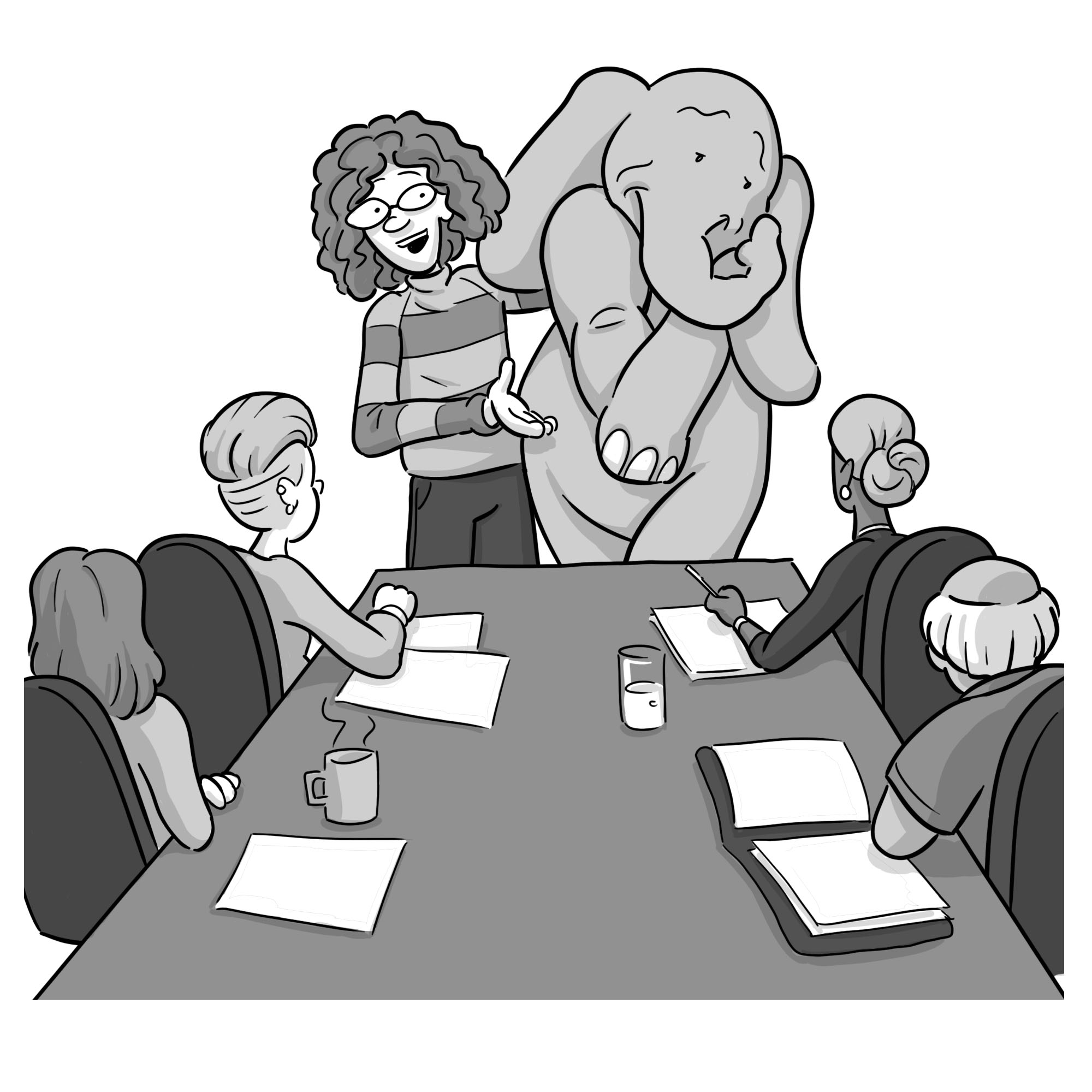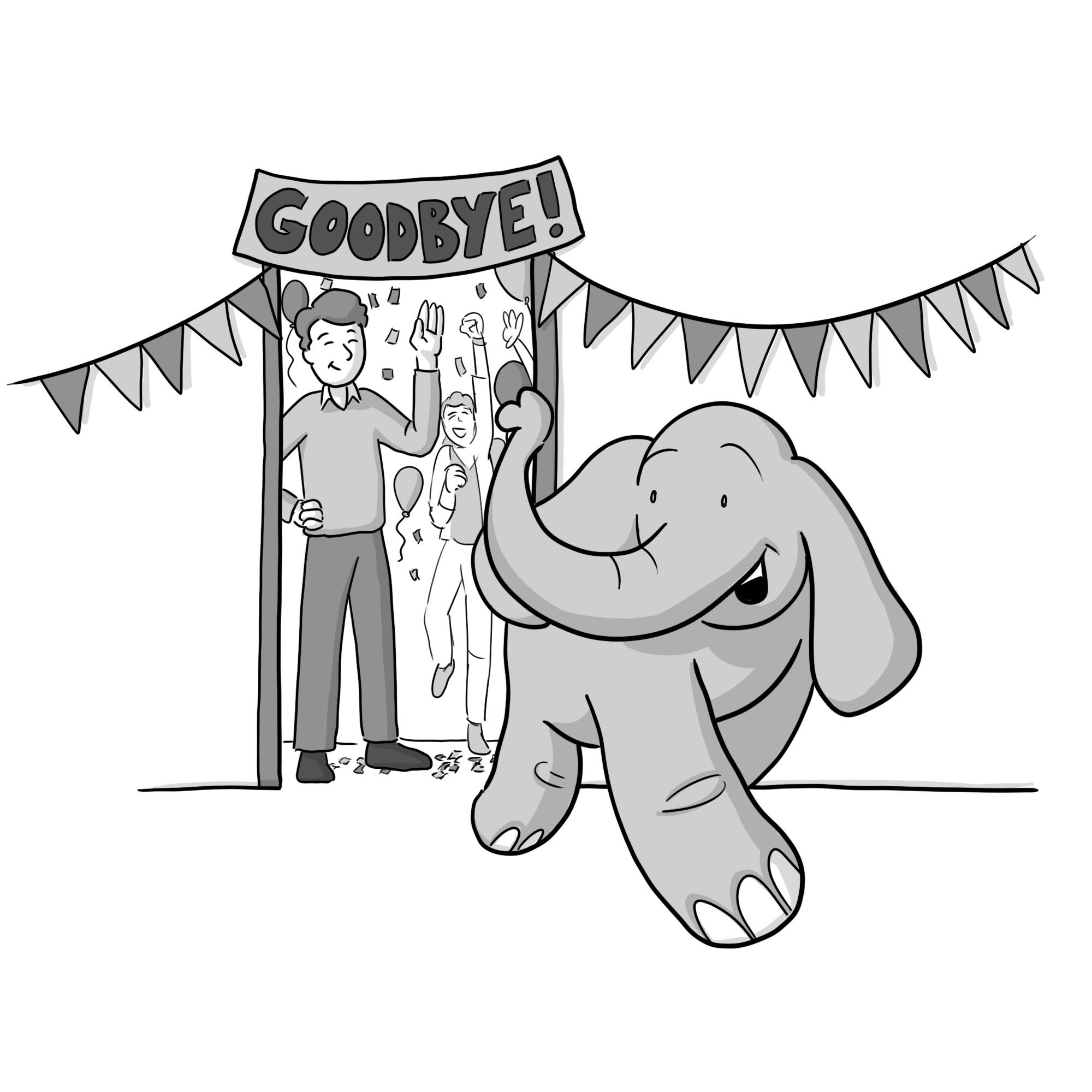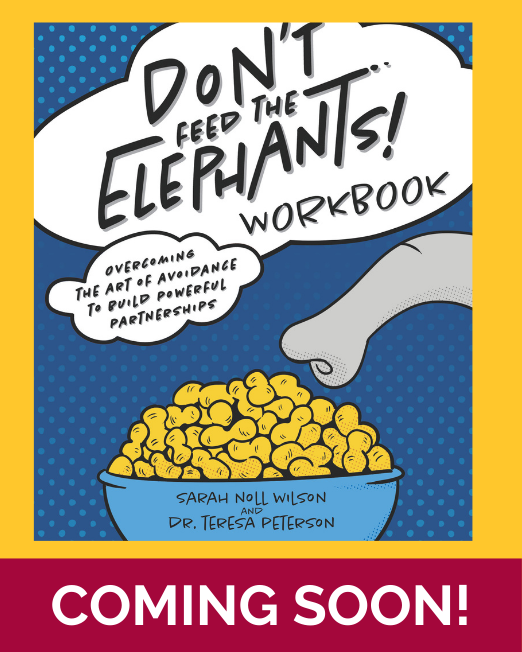
Last week, we brought you Signs There Might Be an Elephant in the Room. As we continue our Month of Elephants (and remember, the elephant is avoidance!) let’s hear from our team about what the work of freeing elephants means to them—and then some:
how has your thinking evolved about elephants (i.e., avoidance) and how THEY can show up?
“Traditionally, we have talked about avoidance through the lens of fear, but we see so many examples of aggressive avoidance with the goal of maintaining power and the status quo.”
-Dr. Teresa Peterson
*
“I think the elephants are always clear to me, and I have learned that using the language prepares others you are communicating with what is about to come. I will say, “I would like to address what I perceive to be an elephant looming over this situation.” That line tends to spark curiosity, and in many cases there is a sense of relief that elephant has been placed on the table for further exploration.”
-Brandon Springle

How have you continued to grow in this work of addressing avoidance?

“I have tried to nourish my mind, body, and soul on an ongoing basis so that I have the energy and resilience. and the compassion to navigate these moments offering my best to others. Life is complex and chaotic at times and addressing avoidance and taking on challenging moments requires energy. I want to have my reserves full so I not only am able to tackle these opportunities but can show up in an effective way.”
-Gilmara Vila Nova-Mitchell
*
“I’ve learned that a little preparation goes a long way. I used to think I could go into a tough conversation with my thoughts in a jumble and they might magically sort themselves out and come our coherently. That never happened. Even a few minutes to focus on regulating myself and organizing my thoughts so a long way in the success of the conversation.”
-Dr. Teresa Peterson

What does the work of freeing elephants mean to you?
“The elephant is a conflict that creates a barrier and goes unaddressed. Think of how often this happens….. at home, with friends, with colleagues. You see someone whose body language changes, they become quiet, the energy shifts. What comes to mind for me is how I wish I had read this book years ago.”
-Mary Ward
*
“This work is so important because it is hard to see others and partner well when you are not effectively addressing conflict. This work is paramount to successful partnerships rooted in honest curiosity and psychological safety. Elephants should be free to run, but not over people when they are not properly addressed.”
-Brandon Springle
*
“It means I am living aligned with my authentic self, my truth, and connecting deeply even when I disagree with others. We don’t need to agree to respect each other and have important conversations! Sometimes clarifying things and sharing your truth is enough for the connection to go deeper and for the work to proceed!”
-Gilmara Vila Nova-Mitchell
*
“I recently freed an elephant that was in my personal life for at least a decade. I had put the time into preparing, but then in the moment, it really needed a deep breath and some courage to just start talking and let the words I had planned so thoughtfully come out. It was a good reminder of the interplay of advance planning and in-the-moment courage. To me, the work of freeing elephants is about creating a space for possibility, growth, and innovation. It’s about building a better human experience—both in and out of work—for everyone involved.”
-Dr. Teresa Peterson

Want More?
Read Don’t Feed the Elephants, and stay tuned for NEXT WEEK when the accompanying workbook launches!

Sarah Noll Wilson is on a mission to help leaders build and rebuild teams. She aims to empower leaders to understand and honor the beautiful complexity of the humans they serve. Through her work as an Executive Coach, an in-demand Keynote Speaker, Researcher, Contributor to Harvard Business Review, and Bestselling Author of “Don’t Feed the Elephants”, Sarah helps leaders close the gap between what they intend to do and the actual impact they make. She hosts the podcast “Conversations on Conversations”, is certified in Co-Active Coaching and Conversational Intelligence, and is a frequent guest lecturer at universities. In addition to her work with organizations, Sarah is a passionate advocate for mental health.


